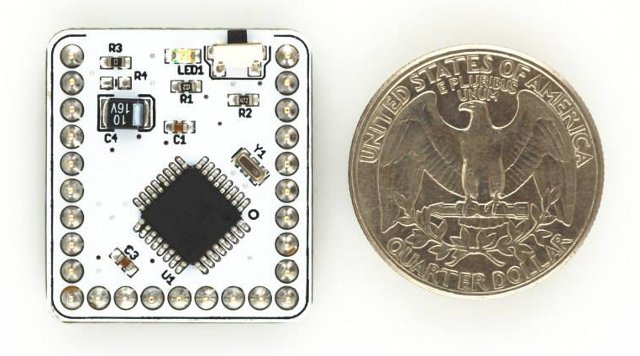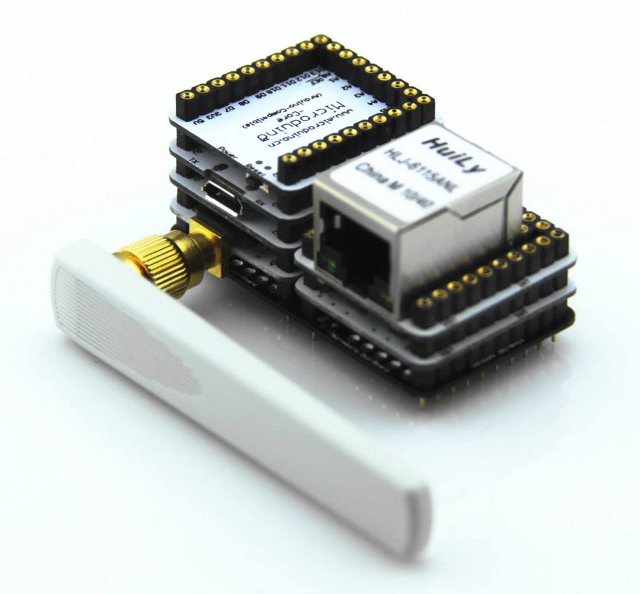Microduino is a small board based on Atmel AVR or ATMega MCU which is software compatible with Arduino boards. The core board features the Atmel MCU, and Microduino shields can be stacked on the core board to add functionalities.
There are actually 2 core boards: Microduino core and Microduino core+ with more performance. They share the following specifications:
- MCU:
- Core – Atmel ATmega328P or ATmega168PA, equivalent to Arduino UNO
- Core+ – Atmel ATmega644PA or ATmega1284P, with performance matching that of the Arduino Mega2560.
- System Memory – 1K to 16K SRAM on-chip
- Storage – 16K to 128K flash + 512 bytes to 4KB EEPROM on-chip
- Operating Voltage: 5V/3.3V
- Input Voltage (limits): 6-20V
- Digital I/O Pins: 14, including 6 capable of PMW output, plus serial, SPI, TWI,
- Analog Input Pins: 8 (2 more compared to Arduino Uno)
- DC Current per I/O Pin: 40 mA
- DC Current: 50 mA
- Dimensions – 25.40mm X 27.94mm
You’ll need to program the board, and during development you’ll have need to add Microduino-FT232R USB to TTL shield to load the program to the board.
Beside the USB to TTL shield, there are several Microduino shields / extension modules available:
- Microduino-ENC – For Ethernet with Microduino-Enc28J60 + Microduino-RJ45)
- Microduino-nRF24 – 2.4GHz communication
- Microduino-SD – Adds a microSD card slot
- Microduino-BT – Adds Bluetooth 4.0 (optionally BT 2.3)
- Microduino-10DOF – Sensor module with three vector chips: MPU6050 + HMC5883L + BMP085
- Microduino-BM – Li-ion battery management module.
- Microduino-OLED(12864) – 0.96″ 12864 display module with SSD1306 driver
Other extention modules are currently under development to add a class-D amplifier, RTC, Wi-Fi, GPS and more. There are also other “base board” such as Microduino-Uno that offers Arduino UNO pinout compatibility and two slots for Microduino-core and Microduino-FT232R
Microduino is open source hardware, and you can find the relevant files on their wiki. There’s also plenty of documentation over there.
The company is currently for funds for mass production via a Kickstarter campaign where you can pledge as low as $32 to get Microduino core + Microduino-FT232R + Microduino-uno to get a an Arduino UNO software and hardware compatible board. Other pledges are available to get different shields combinations.

Jean-Luc started CNX Software in 2010 as a part-time endeavor, before quitting his job as a software engineering manager, and starting to write daily news, and reviews full time later in 2011.
Support CNX Software! Donate via cryptocurrencies, become a Patron on Patreon, or purchase goods on Amazon or Aliexpress






